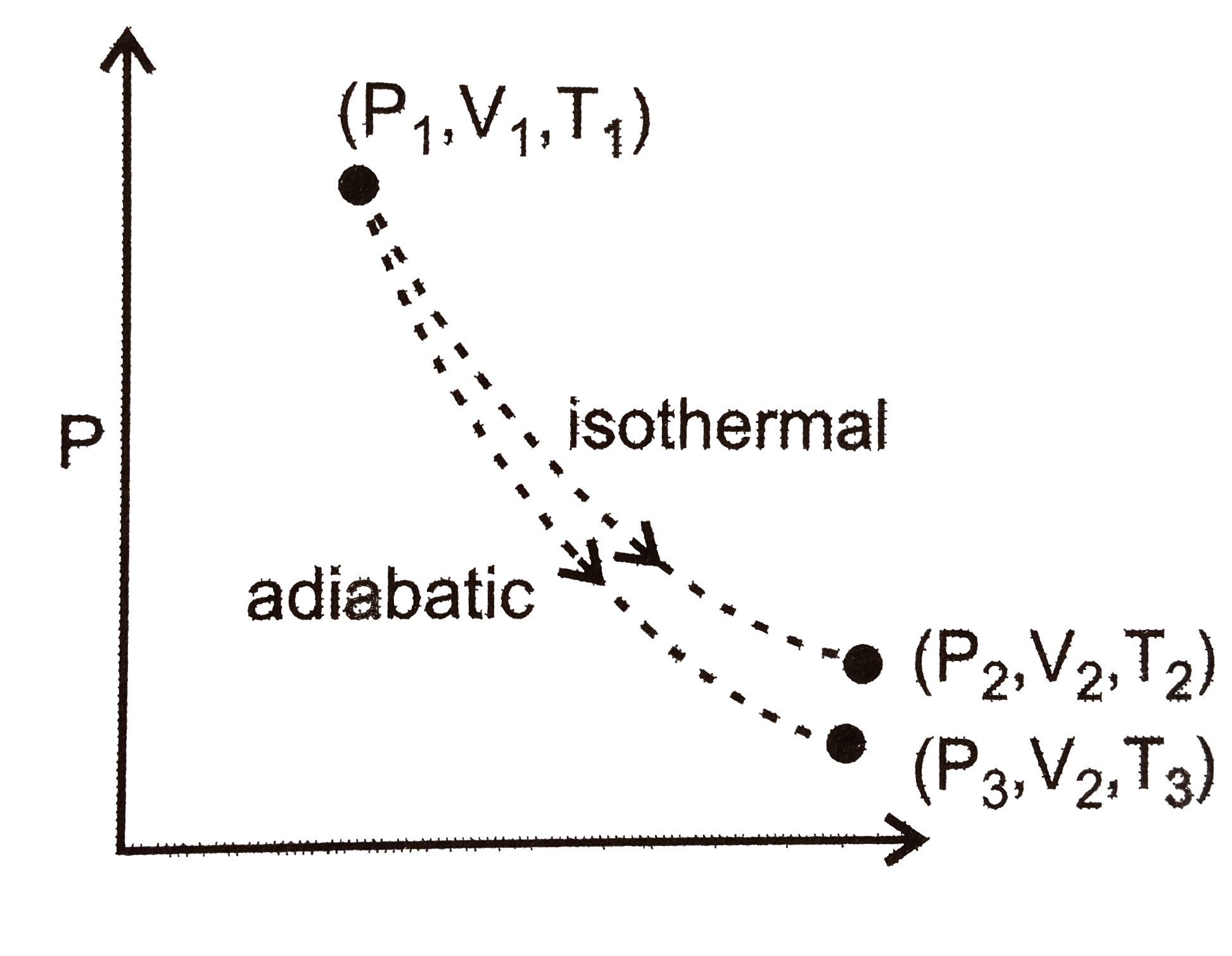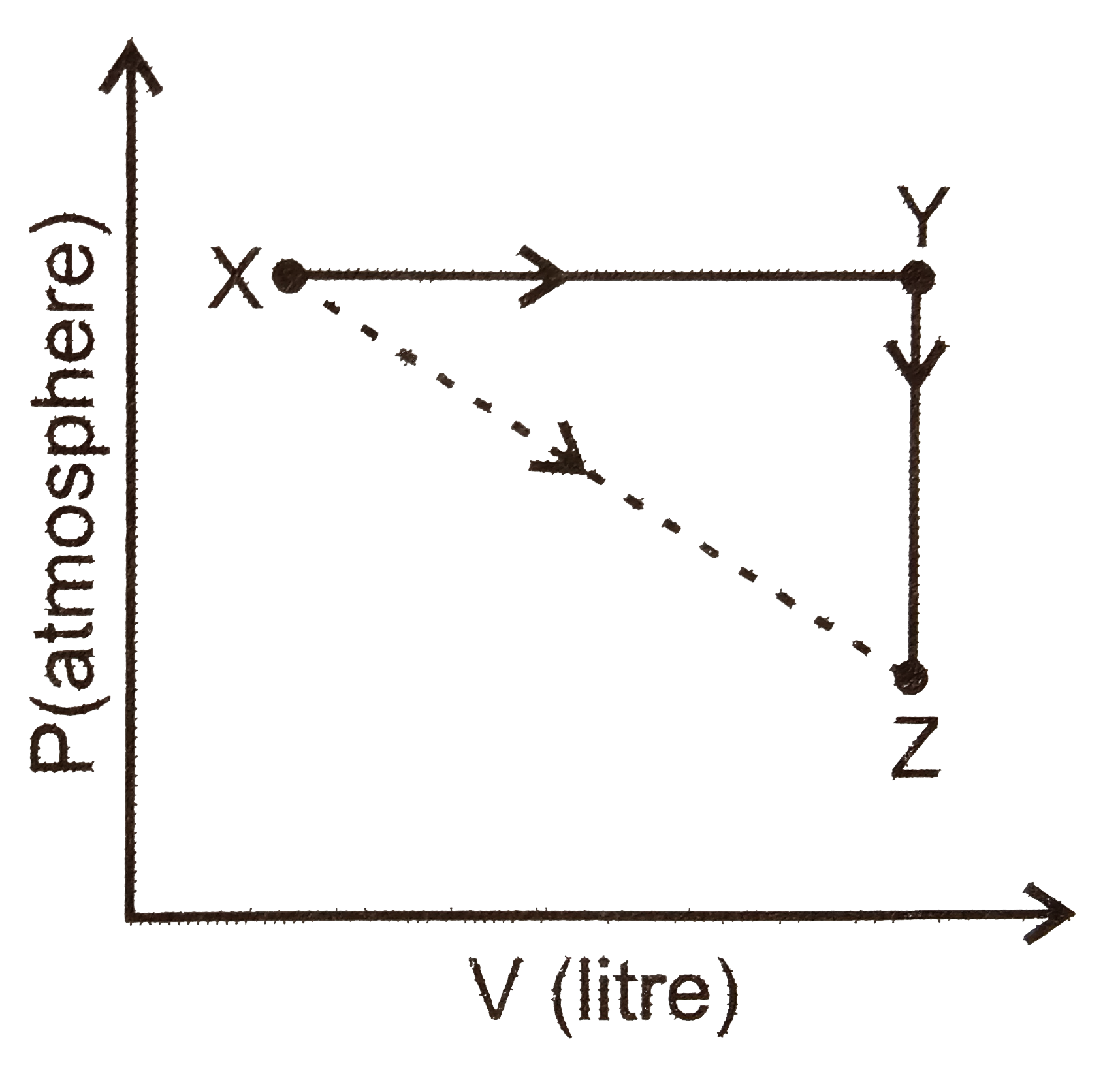Complete Solutions to Set 2 of chapter Chemical Thermodynamics and Thermochemistry of Class 12 book with complete answers and questions
| Class 12 | CHEMISTRY |
| Chapter | Chemical Thermodynamics and Thermochemistry |
| OP TANDON | Set 2 |
| Number Of Questions | 18 |
| Academic Year | 2023-24 |
Which is intensive property ?
View SolutionWhich is an irreversible process?
View SolutionOne mole of anahydrous `MgCl_(2)` dissolves in water and liberates 25 cal`//`mol. Heat of dissolution of `MgCl_(2)`. `H_(2)O` is :
View SolutionFollowing enthalpy changes are given:
`alpha-Dglucose (s) rarr alpha-D glucoes (aq), DeltaH = 10.72 kJ`
`beta-D glucose (s) rarrbeta-D glucose(aq), DeltaH = 4.68kJ`
`alpha-D glucose (aq) rarr beta-D glucose(aq), DeltaH =1.16 kJ`
Calculate enthalpy change in
`alpha-D glucose (s) rarr beta-D glucose (s)`
View SolutionIf `x` and `y` are arbitrary extensive variables, then
View SolutionIf `x` and `y` are arbitrary intensive variables, then
View Solution`H_(2)O(g)+(1)/(2)O_(2)(g)toH_(2)O(g)," "DeltaH=x`
`H_(2)(g)+(1)/(2)O_(2)(g)toH_(2)O(l)," "DeltaH=y`
heat of vaporization of water is:
View SolutionWhich is correct about `DeltaG`?
View SolutionDissociation of sodium azide is given below:
`NaN_(3)toNa+3//2N_(2),`
`DeltaH` for this is:
View SolutionThe lattice energy of KCl is 202 kcal/mo. When KCl is dissolved in water 2 kcal/mol is absorbed. If the sol energies of `K^(+) and Cl^(-)` are in the ratio 2:3 then `DeltaH_("hydration")` of `K^+` is:
View SolutionWhich is a correct relationship?
View SolutionThe standard Gibb's free energy change, `DeltaG^(@)` is related to equilibrium constant, kp as
View SolutionFor the two equations given below:
`H_(2)(g)+1//2O_(2)(g)toH_(2)O(l)+x_(1)kJ`
`H_(2)(g)+1//2O_(2)(g)toH_(2)O(g)+x_(2)kJ`
Select the correct answer:
View Solution`DeltaE=0`, for which process :-
View SolutionFor a reaction to be spontaneous in neither direction, which of the following is/are correct regarding the closed system?
(1). `(DeltaG)_(T,P)=0`
(2) `(DeltaG)_(T,P)lt0`
(3) `(DeltaS)_(U,V)=0`
(4). `(DeltaS)_(U,V)gt0`
View SolutionEnthalpy of neutralization of a strong acid by strong base:
(1) has a contant value of -57.32 kJ
(2) is independent of the nature of strong acid and strong base
(3) result in heat change accompanied by the reaction
`H^(+)(aq)+OH^(-)(aq)toH_(2)O`
View SolutionThe reversible expansion of an ideal gas under adiabatic and isothermal conditions is shown in the figure. Which of the following statement(s) is (are) correct?

View SolutionFor an ideal gas, consider only `P-V` work in going from an initial state `X` to the final state `Z`. The final state `Z` can be reached by either of the two paths shown in the figure. Which of the following choice(s) is (are) correct? [Take `DeltaS` as change in entropy and `w` as work done]

View Solution
Set 2 questions and complete solutions for chapter Chemical Thermodynamics and Thermochemistry of G.R. BATHLA & SONS CHEMISTRY (HINGLISH) of Class 12
All Exercises from OP TANDON Class 12 CHEMISTRY Chemical Thermodynamics and Thermochemistry
- Assertion Reason Type Question
- Assertion Reason Type Question Set-2
- Example
- Illustrations of Objective Questions
- Integer Type
- Linked Comprehension Type Questions
- Matric Matching Type Questions
- Miscellaneous Numerical Examples
- Objective Question Level B
- Objective Question Level B Set II
- Objective Question Level-A
- Practice problems
- Self Assessment
- Self Assessment (Assertion Reason)
- Self Assessment (Integer type).
- Self Assessment (Matrix Type)
- Self Assessment (Multiple Choice)
- Set 2
- Solved Example